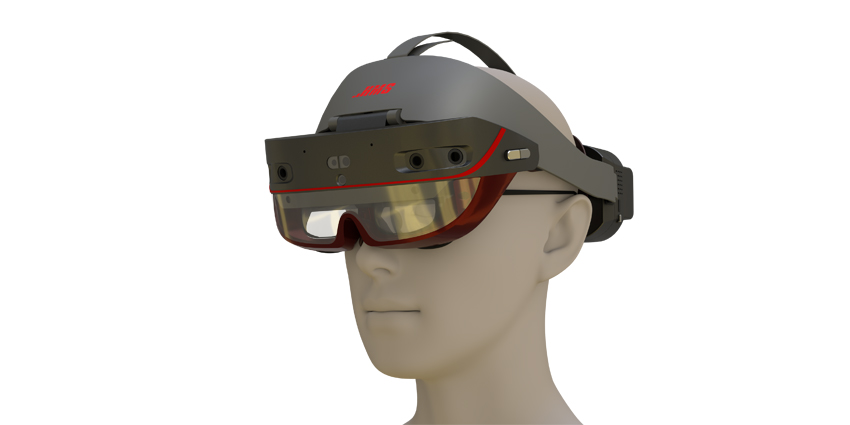As spotted by BusinessLive, the Ministry of Defence (MoD) procurement branch, Defence Equipment and Support (DE&S), is undergoing a three-month smart glasses trial to leverage AR hardware to help support government employees with hearing difficulties by displaying peer-to-peer conversations as real-time immersive text visualisations for users to read.
The MoD chose XRAI Glass to deploy AI-powered AR smart glasses across the Bristol location. The accessibility-focused solution looks to help those with hearing difficulties communicate with colleagues without needing to lip read or rely on a British Sign Language (BSL) interpreter.
Catherine Wrigley, a helicopter safety governance worker, explained that the solution greatly assists workplace communication, and compared to similar solutions, XRAR Glass’ solutions work much better.
Wrigley noted:
Other available software for subtitles can be very inaccurate and state things like ‘having a pasty’ when in fact it’s ‘having capacity’.
XRAI Glass to Provide AR Devices
Canadian smart glasses vendor XRAI Glass is working with the British governmental group to launch the hardware initiative under a £10,000 contract.
The move sees Mod deploy eight AI-powered AR smart glasses, which DE&S workers can book out to test and trial.
Andy Start, a Chief Executive at DE&S, added:
At DE&S we are committed to an inclusive working environment where everyone can thrive and reach their full potential. This pilot will determine if this technology can help staff do their job to the best of their ability.
The DE&S division is conducting a three-month trial period for its AR smart glasses integration at Bristol’s MoD Abby Wood location.
During the three-month trial period, the MoD will gather feedback and data based on various working sessions, including one-to-one and group settings.
If the MoD sees the trial successful, the group will deploy the hardware solution to other UK government departments.
Leveraging smart glasses technology for hard-of-hearing individuals is becoming an emerging healthcare breakthrough.
For example, late last year, heARsight Inc. trialled a pair of AR smart glasses that assist deaf and hard-of-hearing individuals communicate using text-to-speech services.
Riley Ellingsen, the co-founder and CEO of heARsight, noted at the time that the firm’s mission was “to remove barriers faced by individuals who have hearing difficulties.”
As smart glasses continue to rise in prominence, with Meta’s Orion recently stealing headlines, further everyday healthcare and accessibility use cases will also arise. This is further supported by the continued drive for frictionless AR devices that remove the need for invasive hardware or controllers, meaning many individuals can use the technology thanks to increased accessibility considerations.







